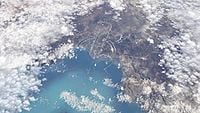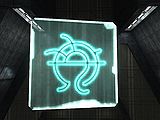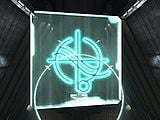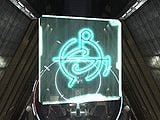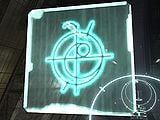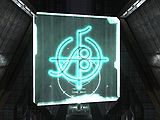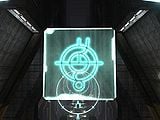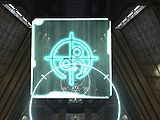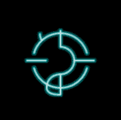Forerunner symbols: Difference between revisions
From Halopedia, the Halo wiki
mNo edit summary |
|||
| Line 2: | Line 2: | ||
{{cleanup}} | {{cleanup}} | ||
{{References}} | {{References}} | ||
[[File:Main-Forerunner.png|thumb|right|200px|One of the most common Forerunner | [[File:Main-Forerunner.png|thumb|right|200px|One of the most common Forerunner glyphs, symbolizing the [[Mantle|Mantle of Responsibility]].]] | ||
'''Forerunner symbols''' were used by the [[Forerunner]]s to convey a variety of meanings. These symbols can be found on Forerunner technology and within Forerunner installations, including the [[Halo Array]]. They are also found on many pieces of [[Covenant Empire|Covenant]] technology. | '''Forerunner symbols''' were used by the [[Forerunner]]s to convey a variety of meanings. These symbols can be found on Forerunner technology and within Forerunner installations, including the [[Halo Array]]. They are also found on many pieces of [[Covenant Empire|Covenant]] technology. | ||
Revision as of 18:25, November 10, 2012
| This article does not meet the wiki's general standards and/or standards on layouts. You can help by cleaning this article. |
| This article does not have enough inline citations and/or does not adhere to the proper citation format. You can help Halopedia by adding citations. |

Forerunner symbols were used by the Forerunners to convey a variety of meanings. These symbols can be found on Forerunner technology and within Forerunner installations, including the Halo Array. They are also found on many pieces of Covenant technology.
Background
While the specifics of Forerunner languages such as Jagon and Digon remain a mystery, with only a handful of words known, the writing system they used to convey meaning is far better understood. The Forerunners appear to have used two different writing methods; the first was a system of glyphs or logograms, rather than parts of an alphabet, highly contextual in nature, with the meaning of different glyphs altered by order and context, and further meaning could be derived if the reader used more three-dimensional interpretations; when combined with different glyphs, a symbol might have radically different meanings, making individual glyphs pictograms or ideograms.
The second mode seems to be a more conventional writing system, using two-dimensional characters written vertically. While the glyph system is common to Forerunner relics, the writing system seems to have been used far less frequently, and the only known examples of its use have all been found on Forerunner relics on Installation 00, either inscribed onto stone relics[1][2] or in holographic form.[3][4]
Other symbols found on Forerunner relics and structures are even less obvious in their meanings. They are obviously decorative in nature, but they are often larger and more elaborate in nature than their glyphs, and may depict specific shapes and forms, and may have more in common with petroglyphs than logograms.
Forerunner glyphs are found on Covenant Luminaries as indicators of Forerunner relics, as the reclaimer glyph was seen to represent humans on Harvest.
The glyph system has been adopted by the Covenant as religious symbols, and their conventional writing system was also used as the basis for their own scripts, despite having little idea as to the true meanings of the original symbols. Humans in general have had little success in translating Forerunner texts, with the notable exception of Dr. Catherine Halsey.[5]
Numbers
Only the Forerunner symbols for numbers one through five are known, though a base symbol with unknown meaning has also been found. It is probable that they also have a symbol for 0, but they may use a base 6 system and not have any more numbers. The base symbol may be the number 0.
The visual features of numerical glyphs differ slightly from those of normal Forerunner glyphs. Like the other glyphs, numerical glyphs use a circle as a base. However, the only features seen on numerical glyphs are concentric circles and arcs, radial lines, and the occasional radial line with a small circle on its end.
Specific symbols
Undefined symbol
A certain symbol exists that has appeared on virtually every Forerunner installation and on the cover of Halo: Ghosts of Onyx.
It has been theorized[6] to be the Forerunner symbol for "Forerunner", or either represent either the Halo Array and all of its additional components as a whole, as it can be interpreted as "Shield and Sword", which was a Forerunner analogy, the "Shield" meaning the Shield Worlds, and the "Sword" the Halo installations.
It has also been theorized that the symbol would solely represent a Shield World, as the Shield World symbol was described as "double-lobed" in Ghosts of Onyx,[7] and because the symbol appears in the cover of the book. However, this does not explain the symbol's frequent appearances on Forerunner facilities completely separate from the Shield Worlds.
This symbol appears inside and outside Installation 04's Map room,[8][9] as well as on Installation 05 in various areas.[10] It also appears on the Ark's surface, if viewed from space. It also makes an appearance in the Terminals throughout the Ark. The symbol also appears on top of a Monitor's "head" and behind the "eye" on the center orb. The surface of Requiem also bears the symbol.[11]
Shield World
Shield Worlds are represented by a symbol described as a "double-lobed icon". The symbol was described when Dr. Halsey was compiling her data with the AI Endless Summer. While Dr. Halsey was working, CPO Mendez asked her what the symbols on the screen are. Dr. Halsey replied that they are Forerunner symbols from the ruins on Onyx, and their theoretical translations. As she continued to work, Mendez then asked the meaning of a double-lobed glyph. Dr. Halsey replied that the symbol, roughly translated, means Shield World.[7]
While the symbol is never described in great detail, it has been theorized that the icon on the cover of Ghosts of Onyx, which also appears on a multitude of other Forerunner installations, could possibly be the symbol for Shield World.
Reclaimer
The Forerunner glyph representing a Reclaimer is identical to the Marathon symbol,[12] although the same symbol appears to have been in common use in Forerunner constructs, including the "eye" of 343 Guilty Spark, as well as the frontal section of an Enforcer.
This symbol is also used by humans in various instances, and it is the ship emblem of the UNSC Pillar of Autumn. It is unknown if this is simply a coincidence, or if there is a relation to their status as Reclaimers.
Installation symbols
In Halo 3, a number of details about the Halo Array arise. In the Ark's Citadel, where the Prophet of Truth attempted to fire the seven Installations, each Installation is shown in detail. Each Halo has its own hologram showing its structure and status, as well as a holographic symbol identifying each Installation. Some notes say that there are two versions of each symbol, one where the player enters the ring room and the view from the pedestal.[citation needed]
Installation 07 symbol
Installation 06 symbol
Installation 05 symbol
Installation 04 symbol
Installation 03 symbol
Installation 02 symbol
Installation 01 symbol
Symbol analysis
The symbols are primarily composed of circles and curves. Each glyph appears to use a circle as a base shape, often combined with either a concentric circle or fragments of one. Another common trait is the presence of one or more circular arcs whose osculating circles' centers lie on the base circle. Non-circular arcs and small non-concentric circles can be seen on some glyphs. The filling in of areas is uncommon but has been seen in Forerunner glyphs.
According to Bungie employee Joseph Staten, the blue and red signs denote the safety of the area -- that is, whether or not the Flood are present.[verification needed] Taking a closer look at the symbols, their locations, and what has been said by Bungie, the following can be deduced:
- CRsymbol1.png
The glowing cyan symbols are found on the control panel in the Halo control room.
- CRsymbol2.png
- CRsymbol3.png
- Plasmasymbol.png
The yellow symbol is found on the Covenant plasma grenade.
- Forerunner lift Symbols.png
It can be deduced that the purple symbol means Elevator or Lift, most likely, as it is seen above doors leading to elevators.
- Floodsymbol1.png
Above the doors where large Flood storage rooms are, two of the red symbols always appear, which backs up what Staten said about red and green symbols.
- Floodsymbol2.png
- CFsymbols.jpg
A number of symbols that have been discovered in Halo: Combat Evolved and Halo 2.
- Chrysopteron.gif
The avatar of AdjutantReflex on Bungie.net.
All of the others are found in various Forerunner structures, mostly on the levels 343 Guilty Spark, The Silent Cartographer, and The Library.
Cropped symbols analysis
Several of the symbols are variations of each other. There are a total of 16 unique symbols; the other 8 are rotations or croppings of the 16 main symbols. Of note is the fact that the cropped versions may not have been intended to be cropped; their in-game textures may have been inadvertently placed such that they extended beyond the edges of the polygons they were on, causing the parts that couldn't fit to be clipped. For sake of being thorough, however, they have been included as separate symbols.
- Forerunner Symbols 5.png
Examples of rotated symbols.
- Forerunner Symbols 4.png
Examples of cropped symbols.
Trivia
The base numerical glyph was used as an avatar by AdjutantReflex.[13]
List of appearances
- Halo: Combat Evolved
- Halo: The Fall of Reach
- Halo: The Flood
- Halo: First Strike
- Halo 2
- Halo: Ghosts of Onyx
- Iris
- Halo 3
- Halo: Contact Harvest
- Halo: Reach
Sources
- ^ Halo 3, multiplayer map Sandtrap
- ^ Halo 3, multiplayer map Sandbox
- ^ Halo 3, multiplayer map Epitaph
- ^ Halo 3, multiplayer map Construct
- ^ Halo: Ghosts of Onyx
- ^ Ascendant Justice: Terminal Visuals
- ^ a b Halo: Ghosts of Onyx, page 181
- ^ Halo: Combat Evolved, campaign level The Silent Cartographer
- ^ Halo: Combat Evolved Anniversary, campaign level The Silent Cartographer
- ^ Halo 2
- ^ Halo 3, Epilogue
- ^ Halo: Contact Harvest
- ^ Iris

